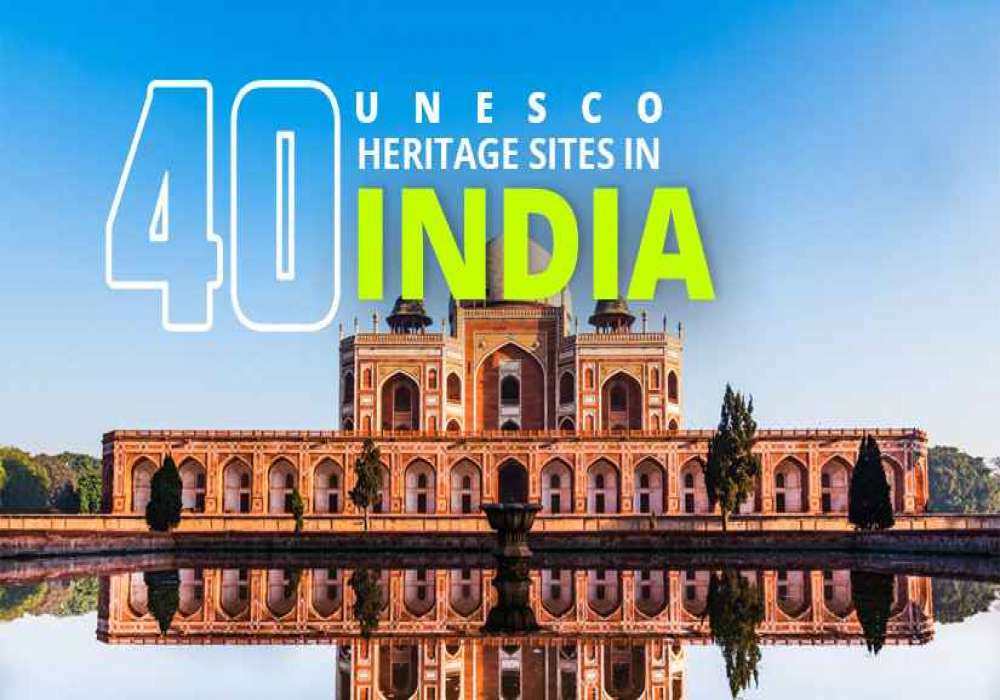
Last Updated At: 19-Sep-2023
40 UNESCO World Heritage Sites in India
With about 40 UNESCO World Heritage sites in India, the country superciliously stands at the sixth position in the world when it comes to preserving the legacy of remarkable natural and cultural wonders. Boasting some dazzling landscapes as well as culturally significant landmarks, discovering Heritage Sites in India is a delightful and enriching experience.
From the iconic Taj Mahal in Agra to the recently added Harappan City, Dholavira, catch a glimpse of old as well as new UNESCO heritage sites in India that will leave you enthralled.
40 World Heritage Sites In India (State-wise)
Here's the list of UNESCO sites in India that hold outstanding universal value!
Heritage Sites in Maharashtra
1. Ajanta Caves
One of the oldest heritage sites in India, Ajanta Caves in Aurangabad, is unequivocally majestic. Comprising 29 intricately carved rock caves, this 2000-year-old Buddhist site in Maharashtra exudes the brilliance of architecture, cave paintings, and sculptures.
- Location: Aurangabad
- Year of Inscription: 1983
- Type: Cultural
2. Chhatrapati Shivaji Terminus
Formerly named Victoria Terminus, Chhatrapati Shivaji Terminus is an example of Victorian Gothic architecture. The prominent landmark of Mumbai, the mammoth-sized Chhatrapati Shivaji’s statue at CST, is a sight to behold. Considered the symbol of progress, numerous reconstruction efforts are carried out every year to preserve this British Era structure which holds the true essence of the city.
- Location: Mumbai
- Year of Inscription: 2004
- Type: Cultural
3. Elephanta Caves
Known as the City of Caves, the gorgeous Elephanta caves in Maharashtra were first discovered by the Portuguese colonists. Boasting exquisite carvings and monolithic architecture, this spectacular world heritage site in Maharashtra depicts the cult worship of Lord Shiva. Holding cultural and religious values, Elephanta caves were declared a world heritage site in India in 1987.
- Location: 25km from Mumbai
- Year of Inscription: 1987
- Type: Cultural
4. Ellora Caves
Yet another iconic cave, Ellora Caves, is a well-preserved UNESCO-recognised site in the country. Boasting about 100 caves, this monastery temple is one of the biggest intricately carved rock-cut structures in India. A blend of Hindu, Buddhist, and Jain cults, Ellora Caves depicts the bygone era's timeless religious harmony and artistic dexterity.
- Location: Aurangabad
- Year of Inscription: 1983
- Type: Cultural
5. Victorian Gothic and Art Deco Ensembles
A wide collection of 19th-century Victorian neo-Gothic public buildings and 20th-century Art Deco, these two essential ensembles of Mumbai are a fine example of modernization that happened in the city of dreams during the 19th and 20th centuries. Both the Victorian Gothic buildings on the eastern side and the Art Deco ensembles on the western belt exhibit an exchange of European and Indian values over the centuries. This Oval Maidan is regarded as heritage importance and was recognized by UNESCO in 2018.
- Location: Mumbai
- Year of Inscription: 2018
- Type: Cultural
Heritage Sites in Uttar Pradesh
6. Taj Mahal
One of the seven wonders of the world, the Taj Mahal is a gleaming white marble monument located on the banks of river Yamuna in the bustling city of Agra. Commissioned by the great Mughal emperor Shah Jahan for his beloved wife, this iconic tomb symbolizes the love and the brilliant architecture of the Mughal empire. This shining jewel of Islamic art is a must-visit place in India as a trip to the Taj Mahal is one of the most incredible experiences to gather in India. Taj Mahal is one of the World Heritage Sites in India.
- Location: Agra
- Year of Inscription: 1983
- Type: Cultural
Also Read: 9 Best Things To Do In Agra Other Than Witnessing Taj Mahal
7. Agra Fort
Spread over a sprawling area of 94 acres, Agra Fort is yet another prominent heritage site in India that offers an incredible experience to travelers. Constructed with red sandstone, this marvelous Mughal monument has an influence on Persian and Arabic architecture. Just about 2.5 kilometers from the famous Taj Mahal, Agra Fort was a main residence of the Mughals until they shifted to Delhi.
- Location: Agra
- Year of Inscription: 1983
- Type: Cultural
8. Fatehpur Sikri
Also known as the City of Victory, Fatehpur Sikri was the planned city commissioned by the Mughal Emperor, Akbar in 1571. Declared as the heritage site in 1986, the Redstone palace complex houses monuments, residential and religious monuments, administrative courts, living areas for the army and servants, and one of the largest mosques, the Jama Masjid. Marked as the capital city of the Mughals for a decade, a trip to Fatehpur Sikri is one of the best things to do in Agra.
- Location: 30km from Agra
- Year of Inscription: 1986
- Type: Cultural
Heritage Sites in Madhya Pradesh
9. Sanchi Stupa
One of the oldest stone structures in India, the great Stupa at Sanchi is believed to house the ashes of Lord Buddha. Comprising monolithic pillars, palaces, temples, and monasteries, this massive complex was a major Buddhist center until the 12th century A.D. Holding universal value, the Stupa at Sanchi was erected by the great Mauryan Emperor, Ashoka after he embraced Buddhism in 250 BC. Exquisitely engraved pillars, walls, and torans on the entrance depict the wonderful craftsmanship of the Mauryan Era which are worth witnessing.
- Location: Sanchi
- Year of Inscription: 1989
- Type: Cultural
Also Read: Top 10 Things To Do In Madhya Pradesh To Make Your Trip Memorable
10. Khajuraho Group of Monuments
Depicting some of the finest art in the world, the temples of Khajuraho are popular for their architectural brilliance. Built during the Chandela dynasty from 900 CE to 1130 CE, the Khajuraho Group of Monuments are known for their erotic sculptures that reflect female beauty and fertility. The epitome of beauty, this massive temple complex in Madhya Pradesh is one of the gems of Indian Heritage that is also recognised by UNESCO.
- Location: Chhatarpur District
- Year of Inscription: 1986
- Type: Cultural
11. Rock Shelters of Bhimbetka
Located on the foothills of the Vindhya mountains, the massive sandstone rock shelters of Bhimbetka display paintings from the Mesolithic period. Recognized as one of the prominent UNESCO Heritage sites in India, the natural rock shelters span across a sprawling stretch of 10 km. With about 750 caves spreading over seven hills, the paintings on the walls have a deep resemblance to the cultural traditions of the tribal inhabitants of the twenty-one villages adjacent to the site, which in itself is an example of its cultural value.
- Location: Bhojpur Raisen
- Year of Inscription: 2003
- Type: Cultural
Heritage Sites in Delhi
12. Humayun's Tomb
One of the spectacular tombs in Delhi built during the Mughal era, the Humayun's Tomb is a perfect example of gorgeous Persian and Islamic architecture. Known as Maqbara-e-Humayun, there are around 150 tombs in the entire Humayun’s tomb complex that are built with red sandstone, white marble domes. Commissioned by Hamida Banu Begum in 1565 AD, the construction of the tomb was completed by Humayun's son Sayyid Muhammad ibn Mirak Ghiyath Ud Din in 1572 AD.
- Location: Mathura Road, Delhi
- Year of Inscription: 1993
- Type: Cultural
Also Read: Reasons To Visit Delhi - Famous Places To Visit In Delhi
13. Qutub Minar Complex
Built in the 13th century by Qutab-Ud-din Aibak after the defeat of the last Hindu kingdom, Qutub Minar stands tall at the soaring height of 73m in the Mehrauli region of the capital city. Also known as the tower of victory, this 5-story minaret signifies the beginning of the Muslim rule in India and is the major highlight of the Qutub complex, which is recognized as a prominent UNESCO Heritage site in India. The complex houses other significant monuments like the Quwwat-ul-Islam mosque, Alai Darwaza, Alai Minar, and the tomb of Iltutmish, which highlights the rich history of Delhi.
- Location: Mehrauli, Delhi
- Year of Inscription: 1993
- Type: Cultural
14. Red Fort Complex
The main residence of the fifth Mughal emperor, Shah Jahan, the Red Fort complex became the new capital of the Mughals in 1639. The erstwhile Quila-e-Mubarak (Blessed Fort), the Red Fort lying along the banks of the river Yamuna in Old Delhi, got its new name due to its massive red stone fortification. Also known as Shahzanabad, this massive Redstone fort adjacent to the Salimgarh Fort, built by Islam Shah Suri in 1546 together, comes under the Red Fort Complex. Due to its geo-cultural impact and architectural brilliance, the Red Fort complex was recognised as one of the world heritage sites in India in 2007.
- Location: Chandni Chowk, Delhi
- Year of Inscription: 2007
- Type: Cultural
Heritage Sites in Rajasthan
15. Keoladeo National Park
With a large number of birds, animals, and aquatic species thriving together in the ecological environment of Keoladeo National Park, it has been acknowledged as one of the best national parks in the world. Formerly a popular hunting ground for the royal family of Bharatpur around 250 years ago, the park was declared a sanctuary in 1976. Also known as Bharatpur Bird Sanctuary, it became a heritage site in 1985 owing to the antiquity and montage of features.
- Location: Bharatpur, Rajasthan
- Year of Inscription: 1985
- Type: Natural
16. Hill Forts of Rajasthan
The land of Forts and Palaces, Rajasthan, is replete with magnificent forts perched on hills that are an integral part of the rich Indian heritage. The spectacular Chittorgarh Fort, Kumbhalgarh Fort boasting the second largest wall in the world, Gagron Fort, famous for Sati culture in India, exceptionally beautiful Amer Fort, shimmering golden Jaisalmer Fort, and the ancient fort of Ranthambore together come under Hill Forts of Rajasthan that are recognised as the World UNESCO Heritage Sites. Preserving the legacy of Rajputana culture, these hill forts have an irresistible charm.
- Location: Chittorgarh, Kumbhalgarh, Gagron, Jaipur, Jaisalmer, Ranthambore
- Year of Inscription: 2013
- Type: Cultural
Also Read: Famous Places To Visit In Rajasthan: Best Itinerary
17. Jaipur City
The Pink City, Jaipur, was recognized as a UNESCO Heritage site in 2019 for preserving the monuments that boast the architecture influenced by Hindus, Mughals, and the contemporary West. With a deep-rooted impact of cultural heritage, craftsmanship, hospitality, and exceptional culinary legacy, the fortified city of Jaipur, is a perfect place for history buffs and heritage lovers. With many spectacular places to visit in Jaipur, the city offers unique experiences that can be gathered on a trip to India.
- Location: Rajasthan
- Year of Inscription: 2019
- Type: Cultural
18. Jantar Mantar
Built by the Rajput king Sawai Jai Singh II, the founder of Jaipur, Jantar Mantar is a collection of 19 astronomical instruments. Builtin the 18th century, this stone-made observatory boasts the astronomical, engineering, and cosmological prowess of the ancient Indians. It features the world's largest stone sundial and is a UNESCO World Heritage site. This is one of the largest observatories in the World, consisting of interesting stone structures that help to interpret the position of celestial bodies and calculate local time. The best time to visit Jantar Mantar is at noon when the Sun is vertically above, which gives a view of the readings of each instrument.
- Location: Gangori Bazar, Jaipur
- Year of Inscription: 2010
- Type: Cultural
Heritage Sites in Gujarat
19. Champaner-Pavagadh Archaeological Park
Boasting archaeological, historical, and living cultural heritage aspects sprawling over an impressive landscape, Champaner-Pavagadh Archaeological Park was declared a UNESCO-affiliated heritage site due to its strategic features. This expansive heritage property from the 14th & 15th centuries is home to fortifications, palaces, shrines, residential buildings, water retaining installations, and the living village of Champaner. This Archaeological Park in Gujarat is also a significant pilgrimage place for Hindus.
- Location: Panchmahal District, Gujarat
- Year of Inscription: 2004
- Type: Cultural
Also Read. 10 Amazeballs Festivals Of Gujarat You Should Add To Your Itinerary
20. Historic City of Ahmedabad
Situated in the heart of Gujarat, Ahmedabad is the first city in India that is inscribed on the list of UNESCO World Heritage Cities. Known for its rich architectural heritage, vibrant culture, and deeply rooted traditions, the city is studded with many Indo-Islamic monuments from the 15th to 17th centuries. The city of Ahmedabad also witnessed the freedom revolution led by Mahatma Gandhi against the Britishers. Despite urbanization and all the developments that have happened over centuries, the colorful city basks in glorifying heritage left by different kingdoms from the past.
- Location: Capital City of Gujarat
- Year of Inscription: 2017
- Type: Cultural
21. Rani-ki-Vav
The remarkable Queen’s Stepwell, Rani-ki-Vav, is one of the oldest and finest step-wells in Gujarat that displays the gorgeous craftsmanship of the bygone era. The step-well was built during the rule of the Chalukya Dynasty in 1063 and took 20 years to complete. Rani Udayamati commissioned this stunning step well to commemorate her husband, Bhimdev I. The temple-like Stepwell displays the architectural style influenced by Maru-Gurjara and boasts sculptures that have a resemblance to the Vimala Vasahi temple in Mount Abu and Sun temple at Modhera. Registered as one of the UNESCO World Heritage Sites in India, various archaeological surveys were carried out to preserve the glory of the Chalukya Dynasty in the form of this Stepwell.
- Location: Patan, Gujarat
- Year of Inscription: 2014
- Type: Cultural
22. Dholavira
Effective water management system, well-planned streets, multi-layered defensive mechanisms, extensive use of stone in construction, distinct architectural features, and special burial structures are some of the reasons why Dholavira won the prestigious title of the world heritage site in India. Holding universal recognition, this ancient city is known as the well-planned city of the Harappan era and is also considered the first Indus Valley Civilisation site in India. Artifacts made with copper, ivory, shell, and stone, semi-precious stone jewelry, terracotta utensils, and gold ornaments that have been found during excavation are fine examples of the heritage of humanity.
- Location: Rann of Kutch, Gujarat
- Year of Inscription: 2021
- Type: Cultural
Heritage Sites in Bihar
23. Nalanda University
The ancient Nalanda University was once a significant learning center for many students from China, Mongolia, Tibet, Korea, and other Asian countries. Getting admission to this university in Bihar was a matter of pride, as only selective students could pass the test by the Guru. During the reign of the Magadha Kingdom in the 5th to 12th century, Nalanda became a prominent educational institution. However, Bakhtiyar Khilji invaded the kingdom and ransacked the Monastery Institution. He killed the monks and also burnt its huge library. However, he couldn’t diminish its glory as even today. This place is the symbol of Unity and Strength between Asian countries.
- Location: Rajgir, Bihar
- Year of Inscription: 2016
- Type: Cultural
24. Mahabodhi Temple Complex
One of the four holy sites related to the life of the Lord Buddha, Mahabodhi Temple Complex houses the sacred Bodhi Tree under which Lord Buddha attained enlightenment. The Vajrasana, Lotus Pond, and ancient stupas are also a part of this complex situated in Bodhgaya. A significant pilgrimage site for Buddhists, the great Mauryan Emperor Ashoka erected the first temple in the complex in the 3rd century after following the path of Buddha.
- Location: Bodh Gaya, Bihar
- Year of Inscription: 2002
- Type: Cultural
Heritage Sites in Tamil Nadu
25. Great Living Chola Temples
Heralding the marvellous architecture of South India, the Great Living Chola Temples of Tamil Nadu represent the pure form of Dravidian temples. The three beautifully sculpted temples at Thanjavur, Darasuram, and Gangaikondacholapuram are living examples of Chola ideology. Known for their extraordinary architecture, the three temples from the Chola dynasty were inscribed as prestigious world heritage sites in India in 1987.
- Location: Thanjavur, Darasuram and Gangaikondacholapuram
- Year of Inscription: 1987
- Type: Cultural
Also Read. Top 10 Places To Visit In Tamil Nadu To Add To Your South India Wishlist
26. Group of Monuments at Mahabalipuram
The prominent port city along Coromandel Coast, Mahabalipuram was once a centre of trade during the Pallava dynasty in the 6th to 9th centuries. Also known as Mamallapuram, this place holds a distinct position in the classical architecture of India owing to a group of beautiful monuments that showcase superior craftsmanship during the Pallava kingdom. The Mandapas (rock-cut caves), the Rathas (monolithic temples), rock reliefs, and monolithic temples are some of the excavated remains that are universally recognised and classified together as a World Heritage Site by UNESCO.
- Location: Kancheepuram, Tamil Nadu
- Year of Inscription: 1984
- Type: Cultural
Heritage Sites in Karnataka
27. Group of Monuments at Hampi
Speaking volumes of the grandeur of the Vijayanagara Empire, the historical town of Hampi is considered the largest open-air museum in the world. Once an affluent city of merchants trading diamonds, silks, and brocades, the glorious city of Hampi boasts grandeur in its relics. Fringed with massive fortification and dotted with magnificent palaces, marvellous temples, and intricately carved pillars, this erstwhile capital city of the Vijayanagara Empire is definitely one of the most treasured places in terms of preserving rich Indian heritage in the testimony of time.
- Location: Hampi
- Year of Inscription: 1986
- Type: Cultural
28. Group of Monuments at Pattadakal
This famous world heritage site situated in Karnataka, Pattadakal group of monuments comprises ten beautiful temples that display the architectural prowess of the Chalukya dynasty. Built between the 7th and 8th centuries, nine Hindu temples and a Jain sanctuary are famous world heritage sites located about 22km from Badami. The Temple of Virupaksha, which was built by Queen Lokamahadevi to commemorate her husband's victory, is a masterpiece that is acknowledged for its universal value.
- Location: Pattadakal, Bagalkot, Karnataka
- Year of Inscription: 1987
- Type: Cultural
Heritage Sites in Odisha
29. Konark Sun Temple
A famous UNESCO World Heritage Site in Odisha, Konark Sun Temple is popular for its unique architecture. Dedicated to the Sun God, this marvelous temple is built in the form of his massive chariot that has twelve pairs of wheels drawn by seven horses. This popular tourist place of Odisha was once a navigational landmark for the sailors during ancient times, and due to its dark color, the sailors used to call it Black Pagoda. According to the legends, Lord Vishnu placed his Padma (lotus) at Konark, which is why it is also known as Padma kshetra.
- Location: Konark, Odisha
- Year of Inscription: 1984
- Type: Cultural
Heritage Sites in Himachal Pradesh
30. Great Himalayan National Park Conservation Area
Holding a global significance and listed among the World Heritage Places in India in 2014, the Great Himalayan National Park Conservation Area is popular for maintaining Western Himalayan biodiversity. Located in the Kullu dussehra District of Himachal Pradesh, this park is scattered over an area of 1736 sq. km towards Tirthan and Sainj valley. Home to a number of unique flora and more than 376 fauna species along with various species of birds, reptiles, and insects, the complete area is well protected to preserve these species.
- Location: Kullu District
- Year of Inscription: 2014
- Type: Natural
Heritage Sites in Uttarakhand
31. Nanda Devi National Park and Valley of Flowers National Park
The area is reputed as one of the most spectacular wildernesses in the Himalayas and is dominated by 'Nanda Devi Peak', which is a natural monument and India's second-highest peak. Boasting rich topography, amazing climate, and fertile soil, Nanda Devi National Park supports a unique ecosystem and diverse habitat in the Himalayan region. Inscribed as one of India's UNESCO world heritage sites in 1988, this sprawling national park in the state of Uttarakhand has received this prestigious status because of its natural significance.
- Location: Central Uttarakhand
- Year of Inscription: 1988
- Type: Natural
Heritage Sites in West Bengal
Also Read. Travel Again India: Explore Uttarakhand And Bask Once Again In The Lap Of Nature
32. Sundarbans National Park
Famous for its unique mangrove forests, Sunderban National Park is an active delta region spread across 40,000 sq km, one of the world's largest regions. Stretching from river Hooghly in West Bengal to River Baleswar in Bangladesh, Sundarbans is a biosphere reserve, national park, and tiger reserve all at once. Also famous for dense Sundari trees, the roots of the trees shoot upwards during monsoon season for respiration.
- Location: West Bengal
- Year of Inscription: 1987
- Type: Natural
Heritage Sites in Goa
33. Churches and Convents of Goa
Once the capital of the Portuguese, Old Goa is replete with Churches and Convents that have been recognised by UNESCO as World Heritage Sites. Displaying art and architecture influenced mainly by Portuguese style, these monuments reflect the exchange between the two different cultures. St. Catherine's Chapel, Basilica of Bom Jesus, Se Cathedral, Church of Saint Cajetan, including the seminary and Church of Our Lady of the Rosary, and a few more together represent the legacy of Portuguese colonialism in India.
- Location: Old Goa
- Year of Inscription: 1986
- Type: Cultural
Also Read. Is Goa Your Favorite Place? What Else Have You Explored There?
Heritage Sites in Assam
34. Kaziranga National Park
Famous for the preservation of rare one-horned rhinoceros, Kaziranga National Park is one of the richest national parks in the country. Boasting the highest density of tigers, Kaziranga is also acknowledged as the richest Tiger Reserve in the world. Breeding ground for elephants, wild water buffalo, and many avifaunal species, the park has received the prestigious status of UNESCO Heritage site, especially for wildlife conservation. Right from dolphins to many migratory birds, the park offers visibility to many unique sights of animals and birds in their natural habitat.
- Location: Kanchanjuri, Assam
- Year of Inscription: 1985
- Type: Natural
Also Read. 15 Tourist Places In Assam For An Unforgettable Vacation
35. Manas Wildlife Sanctuary
A unique biosphere reserve, Project Tiger Reserve, Project Elephant Reserve, and a natural UNESCO World Heritage Site, Manas National Park in Assam is the only place that has so many prestigious acknowledgements. Offering a unique combination of scenic beauty and rich wildlife along with a plethora of activities, one can enjoy Jeep Safari, Elephant Safari, River Rafting, and Birdwatching all together in one biodiversity zone.
- Location: Gobardhana, Assam
- Year of Inscription: 1985
- Type: Natural
Heritage Sites in Sikkim
36. Khangchendzonga National Park
Holding natural and cultural significance, Khangchendzonga National Park is India's first “mixed” World Heritage site, recognised by UNESCO. The national park boasts 17 alpine lakes and magnificent views of 9 mountain ranges, and spectacular wildlife with exotic animal species. This national park in Sikkim is home to the sacred Buddhist shrine, Tholung Monastery. The sprawling high-altitude national park also offers a number of trekking expeditions, starting from Yuksom and Green Lake with Lachen. While trekking, one can spot rare species of animals such as Red Panda, Snow Leopard, Great Tibetan Sheep, Bharal, Musk deer, etc.
- Location: Sakkyong, Sikkim
- Year of Inscription: 2016
- Type: Mixed (Natural & Cultural)
Also Read. Top 15 Places To Visit In Sikkim
Heritage Sites in Chandigarh
37. Capitol Complex
The Architectural Work of Le Corbusier is an Outstanding Contribution to the Modern Movement
Chandigarh Capitol Complex, located in sector-1 of Chandigarh city in India, is a government compound designed by the architect Le Corbusier and is a UNESCO World Heritage Site. It is spread over an area of around 100 acres and is a prime manifestation of Chandigarh's architecture. The Open Hand monument is one of the highlights of the Capitol Complex. Designed by architect Le Corbusier, the structure is the emblem of the Government of Chandigarh. This major landmark of Chandigarh has three buildings: the Secretariat, the Palace of Assembly, and the High Court. The complex is spread across 100 acres of land and is also a masterpiece of Chandigarh's architectural expertise.
- Location: Sector 1, Chandigarh
- Year of Inscription: 2016
- Type: Cultural
Also Read. Top 10 Places To Visit In Chandigarh With Your Gang
Heritage Site in Telangana
38. Kakatiya Rudreshwara Temple
The 800 years old Rudreswara temple, Ramappa Temple is a UNESCO World Heritage Site located in the state of Telangana in southern India. This Shiva temple is named after Ramappa who was the main architect who worked laboriously for 14 years when the temple was being constructed. Apart from architectural precision, the temple of Ramalingeshwara Swamy is famous for unique features like a roof built with bricks that float on water and the pillars producing musical notes when tapped in certain places. The temple was built during the reign of the Kakatiya empire in 1213.
- Location: Mulugu, Telangana
- Year of Inscription: 2016
- Type: Cultural
39. Western Ghats
A massive mountain chain spreading over an area of 7,953 sq km in the Western Ghats region of India was inscribed as a world heritage site in India in 2012. Recognized as the eight hottest hotspots of biological diversity in the world, this region's ecosystems highly influence the monsoon pattern in the country. Comprising a cluster of 39 strategic sites, the region brings together tiger reserves, national parks, wildlife sanctuaries, and reserved forests in the Indian states of Maharashtra, Karnataka, Kerala, and Tamil Nadu.
- Location: Western Ghats
- Year of Inscription: 2012
- Type: Natural
Also Read. Top 10 Places To Visit In Telangana Blessed With Nature’s Choicest Blessings
40. Mountain Railways of India
Three major operational mountain railheads, the Darjeeling Himalayan Railway of West Bengal, the Nilgiri Mountain Railways of Tamil Nadu, and the Kalka Shimla Railway of Himachal Pradesh were listed as the UNESCO World Heritage Site as these Mountain Railways serve as an inspiration for similar developments in different parts of the world. The Mountain Railways of India reflect an innovative transportation system and developments in technology that holds universal significance and are a model for other developing countries.
- Location: West Bengal, Himachal Pradesh, Tamil Nadu
- Year of Inscription: 1999
- Type: Cultural
Right from natural wonders to architectural marvels, we hope reading about these 40 UNESCO world heritage sites in India must have fuelled your wanderlust. Book your flights, hotels, and tour packages with Adotrip to get unmatched deals. With us, nothing is far!
Frequently Asked Questions Related To 40 UNESCO World Heritage Site In India
Q1. How many World Heritage Sites are there in India?
A1. There are a total of 40 World Heritage Sites in India which includes 32 cultural sites, 7 natural sites, and 1 site of mixed criteria.
Q2. How many types of heritage are there in India?
A2. There are three types of heritage in India:
- Natural
- Cultural
- Mixed
Q3. Who declares a World Heritage site?
A3. UNESCO - United Nations Educational, Scientific and Cultural Organization declares the World Heritage Site. These sites hold a strong historical, cultural, and scientific significance of universal value.
Q4. Which city is known as the Heritage city of India?
A4. Ahmedabad is declared the first heritage city of India. With their profound architectural heritage, the mosques & tombs showcase excellent craftsmanship. Ahmedabad gracefully portrays the Sultanate period and the city’s contribution to the famous arts and crafts linked with glorious myths and traditions.
Q5. What are natural world heritage sites in India?
A5. There are seven natural World Heritage Sites in India, namely:
- Kaziranga National Park
- Nanda Devi and Valley of Flowers National Park
- The Western Ghats
- Sundarbans National Park
- Keoladeo National Park
- Kaziranga National Park
- Manas Wildlife Sanctuary
Q6. How many cultural heritage sites are there in India?
A6. A total of 32 cultural heritage sites in India were declared by UNESCO.
Q7. How many world heritage sites in india?
A7. There are a total of 40 World Heritage Sites Located in India. It includes 32 Cultural sites, 7 Natural, and 1 of mixed category.
--- Published By Shradha Mehra
Latest Blogs

Cash in the Wild: My Safari Adventure Across Kenya with Only...

One Day Picnic Spot Near Pune - Adventure, Trekking and Natu...

One Day Picnic Spots Near Mumbai - Monsoon, Adventure, Beach...

The Best Places to Go in Thailand in 2025
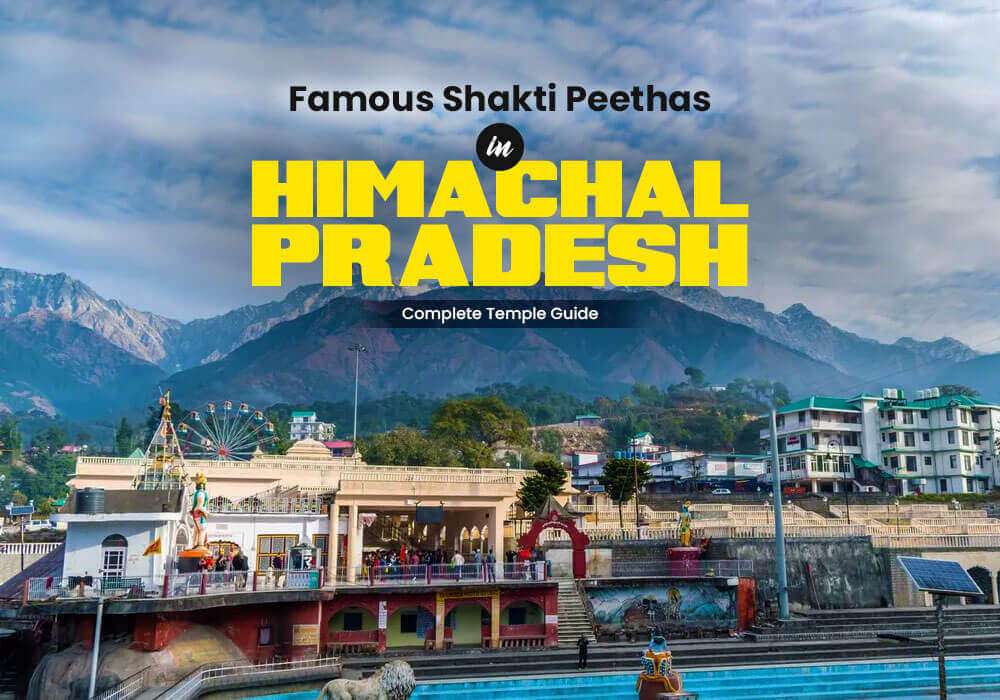

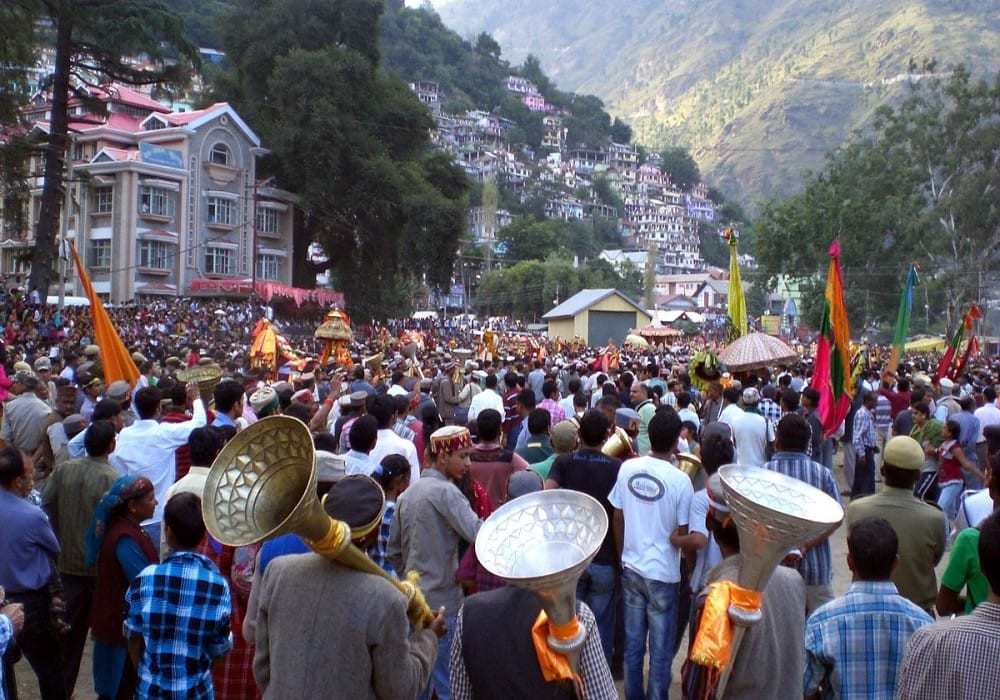
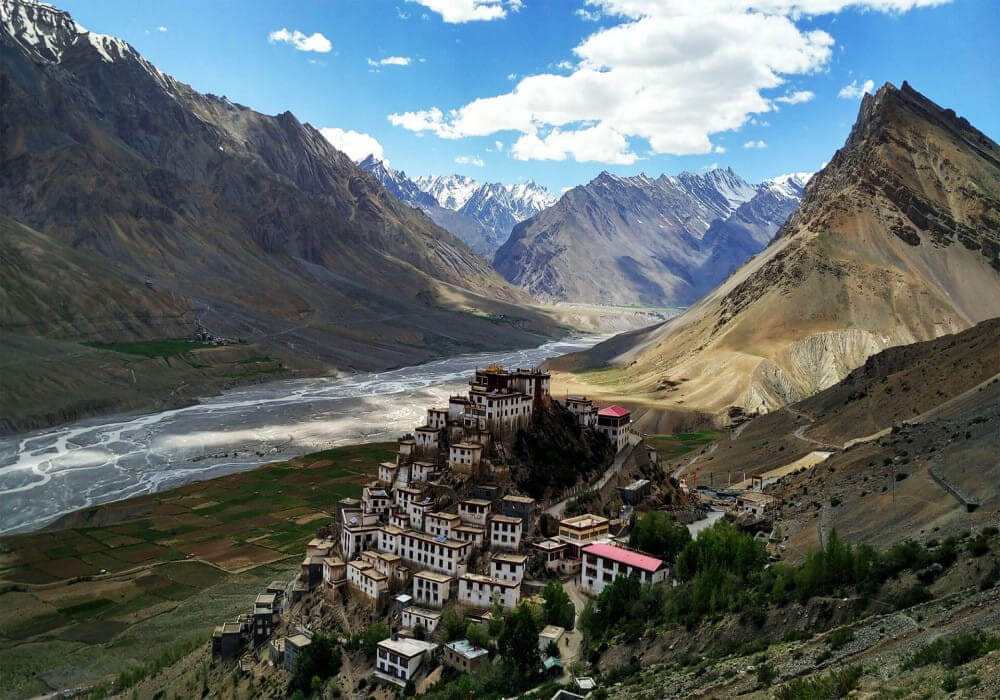







.jpg)
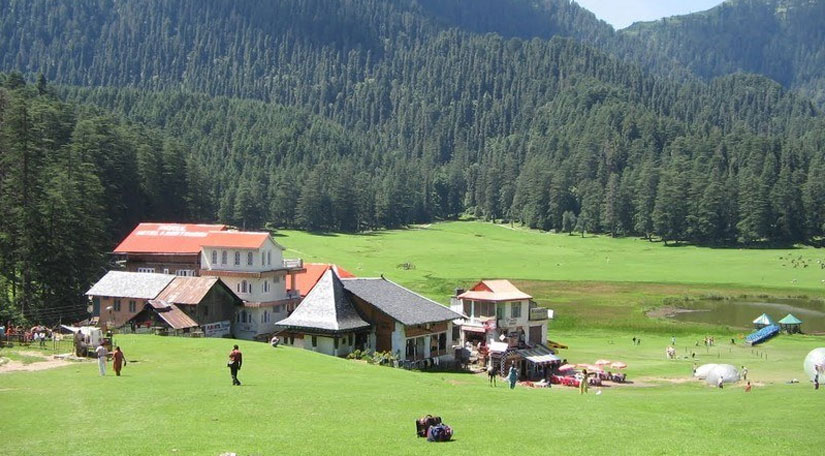
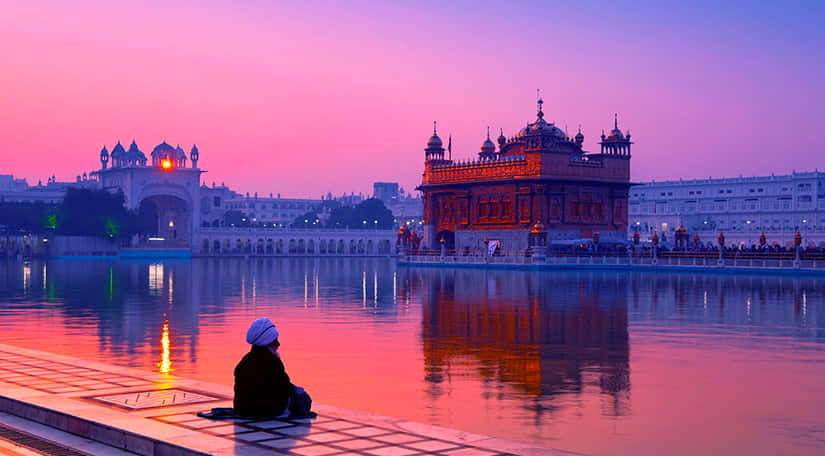
 Dubai
Dubai Malaysia
Malaysia USA
USA





